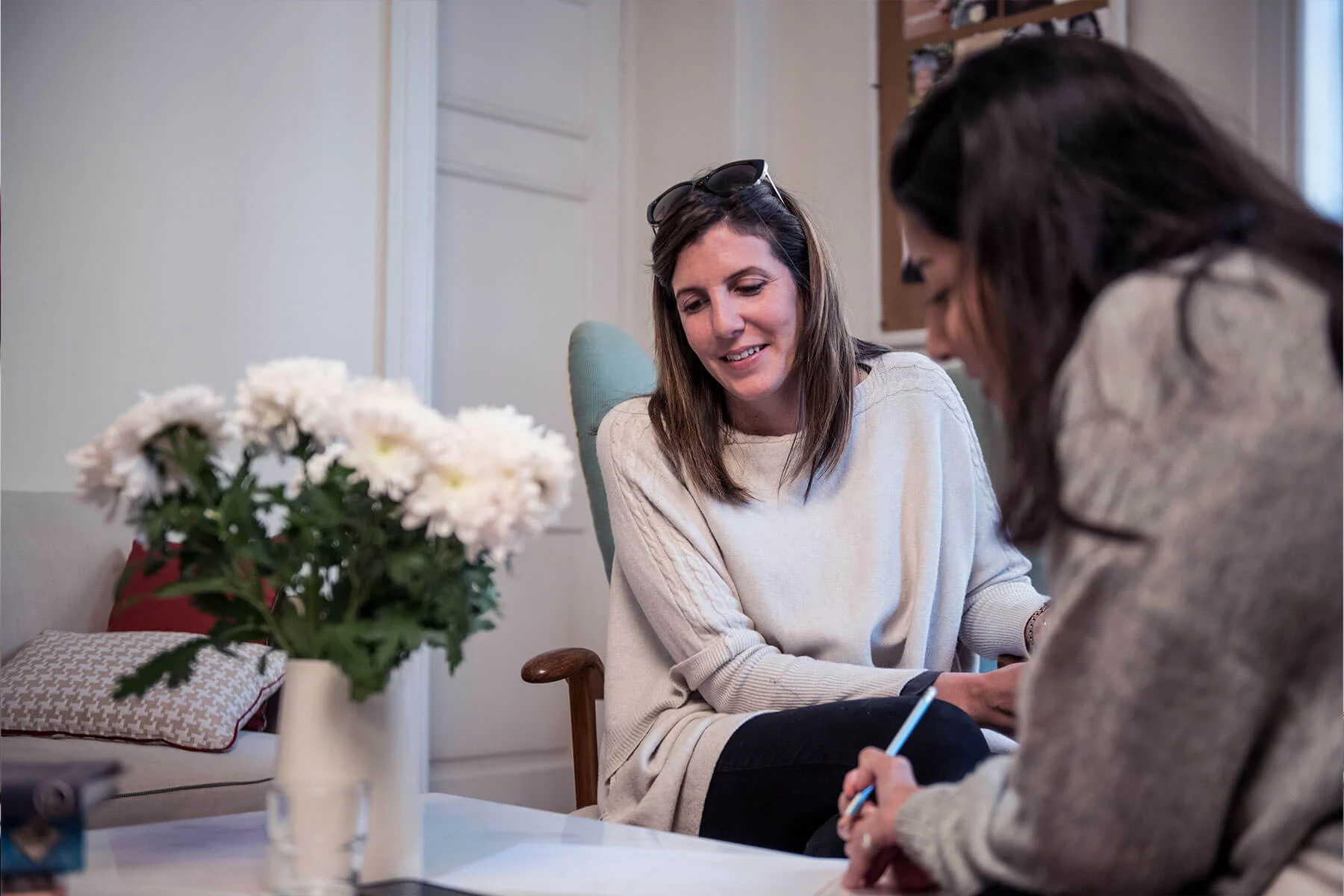
High Ticket Inbound Closer: How to Master Ethical Sales and Close Premium Deals with Confidence
What Is a High Ticket Inbound Closer and Why Are They in Demand?
A high ticket inbound closer specializes in converting warm leads into paying clients for premium products or services, usually priced at $2,000 or more. Unlike traditional sales reps who engage in cold outreach, inbound closers handle leads who have already expressed interest by opting into a funnel, scheduling a call, or engaging with marketing content. This distinction makes the role both strategic and customer-focused. Businesses that offer high-end coaching, consulting, and digital services often rely on high ticket inbound closers to turn qualified interest into revenue. With the rise of online education, SaaS, and virtual high-ticket offers, demand for skilled inbound closers has skyrocketed. Companies want professionals who can convert without pressure or sleazy sales tactics—people who understand the psychology of trust and urgency. The role offers flexibility, strong earning potential, and the opportunity to work with premium brands and entrepreneurs.
The Core Responsibilities of a High Ticket Inbound Closer
At the heart of a high ticket inbound closer’s role is managing sales calls with potential buyers who have shown interest in a product or service. This means showing up prepared, reviewing the client’s background, and tailoring the conversation to their unique needs. During the call, closers are responsible for asking powerful questions that reveal the client’s pain points, goals, and desires. They must build rapport quickly, establish authority, and guide the client toward a clear buying decision. One of the most important responsibilities is handling objections—not by pushing, but by leading the client through their doubts with empathy and insight. A skilled closer ensures every prospect feels heard, understood, and confident about their purchase. After the call, the closer follows up when necessary and reports outcomes to the team or CRM. Every step is designed to help the prospect make a confident investment without pressure.
Skills That Set a High Ticket Inbound Closer Apart
Great high ticket inbound closers don’t rely on hype or manipulation. Instead, they master soft skills that influence trust, clarity, and emotional resonance. Active listening is one of the most essential traits—they must understand not just what the client says but what they mean beneath the surface. Emotional intelligence allows them to read tone and mood shifts in a conversation and respond accordingly. Rapport-building is another must-have skill, as it sets the tone for the entire call and allows the client to feel safe and seen. Effective closers also utilize structured frameworks like the GAP method or NEPQ to guide conversations naturally toward conversion. Confidence, adaptability, and the ability to stay calm under pressure are also critical. These professionals know when to lead, when to pause, and how to ask the right questions that drive clarity and action. Their skills turn conversations into conversions, not by force, but through authentic connection.
How to Become a High Ticket Inbound Closer with No Prior Sales Experience
Starting a career as a high ticket inbound closer doesn’t require a fancy degree or years of corporate sales experience. Many successful closers come from unrelated fields and enter the profession through online training or mentorship. Some programs offer roleplay-based curriculums where students simulate real closing calls, gain feedback, and build confidence. These courses often cover objection handling, sales psychology, and offer real scripts used by professional closers. After training, new closers can begin building experience by working with small coaches or agencies. Many start part-time, earning commission-only until they build up testimonials and a portfolio. Networking with business owners, joining sales placement platforms, or applying directly to funnel-based companies are smart ways to land a first role. The key is demonstrating professionalism, coachability, and hunger to succeed—qualities more important than any formal background.
Tools and Tech Every High Ticket Inbound Closer Should Know
To thrive in a remote sales role, a high ticket inbound closer needs to be tech-savvy and efficient with essential tools. CRM platforms like GoHighLevel, HubSpot, or Close.io are vital for tracking leads, managing follow-ups, and maintaining a record of conversations. Call scheduling tools like Calendly or Acuity help coordinate appointments with prospects across time zones. For conducting sales calls, Zoom and Google Meet are industry standards, often combined with call recording tools for performance review and coaching. Email automation platforms and pipeline dashboards help closers keep tabs on leads who require nurturing. Many closers also use tools like Slack, ClickUp, or Trello to communicate with team members and track progress. Familiarity with analytics dashboards lets them monitor key performance indicators like close rates and call durations. Having the right tech stack gives closers the ability to stay organized, professional, and responsive to client needs.
Daily Workflow of a High Ticket Inbound Closer
The daily life of a high ticket inbound closer revolves around intentional structure, call preparation, and consistent follow-through. Each day usually starts with reviewing scheduled sales calls, researching the prospect’s application, and customizing a strategy for each conversation. During the day, they conduct live video or phone calls, guiding clients through their decision-making process. After each call, they log details into their CRM, tag outcomes, and trigger follow-up emails if needed. Time is also spent reviewing call recordings, practicing objections, and learning from top performers. Inbound closers must also stay mentally sharp, managing energy levels, mindset, and time zones—especially if they’re working with international leads. Many closers cap their days at 3–6 calls depending on offer complexity, call length, and commission goals. Unlike traditional sales jobs, inbound closers focus more on quality of calls rather than quantity, aiming to close warm leads rather than chasing cold ones.
How High Ticket Inbound Closers Get Paid
High ticket inbound closers typically earn income through commissions based on closed deals, making it one of the most performance-driven yet rewarding sales roles. The average commission per sale can range from $300 to $3,000+ depending on the price point of the offer. For example, closing a $5,000 coaching package with a 10% commission means earning $500 in one call. Some businesses offer tiered commissions or bonuses based on monthly targets or closing ratios. Others provide base retainers to top closers, especially if handling high volumes of leads. Closers working with agencies or influencers may also get paid through revenue-share models. Monthly earnings can range from $3,000 to over $15,000, depending on lead volume, close rates, and niche. Those who freelance enjoy the flexibility of working with multiple clients, while full-timers benefit from more consistent lead flow and internal team support.
Mistakes to Avoid When Starting as a High Ticket Inbound Closer
While the role is lucrative, new high ticket inbound closers often make avoidable mistakes that can stall their growth. One major pitfall is pushing too hard on calls, which can turn off potential buyers. Instead, successful closers guide with empathy and authority. Another mistake is skipping post-call follow-ups, especially when the client says “not right now.” Proper follow-up is where many deals close. Failing to listen actively and interrupting the client too often also breaks trust. New closers sometimes rush to pitch before understanding the prospect’s needs. Another common error is not reviewing call recordings or seeking feedback, which slows down skill development. Burnout is also real for closers who don’t manage their schedules or set clear daily goals. By staying coachable, focused, and committed to the process, newcomers can avoid these traps and grow quickly in this rewarding field.
Building Long-Term Career Growth as a High Ticket Inbound Closer
A high ticket inbound closer can build a six-figure career and open doors to greater opportunities in sales leadership, entrepreneurship, or consulting. As closers refine their skills and boost their close rates, they may be invited to mentor or train new sales reps. Some go on to become sales coaches, building their own programs and serving other businesses. Others create their own high ticket offers, like consulting or digital courses, using their sales knowledge to scale profitably. Building a strong network with agency owners, entrepreneurs, and marketing professionals helps closers gain access to premium opportunities. Over time, many closers move from commission-only roles to high-retainer or profit-share models, providing income stability. With dedication, strong ethics, and strategic relationship-building, this path becomes more than a sales job—it becomes a platform for long-term professional and financial freedom.
FAQ: Common Questions About High Ticket Inbound Closers
Can I be a high ticket inbound closer part-time?
Yes. Many closers start part-time and scale up as they gain experience and build a consistent flow of qualified calls.
How much can I earn realistically in my first year?
Earnings vary, but many beginners report making between $3,000–$8,000/month within 6 to 12 months, depending on offer price and volume of leads.
Do I need a background in sales or marketing?
No prior sales experience is required if you’re willing to learn, train, and practice. What matters most is coachability and consistency.
How do I find companies that need high ticket closers?
You can find opportunities on sales placement platforms, in coaching groups, or by reaching out to online entrepreneurs with sales funnels.
What’s the best way to stand out from other closers?
Demonstrate reliability, show up prepared, ask thoughtful questions, and always focus on helping—not selling—for long-term success.


